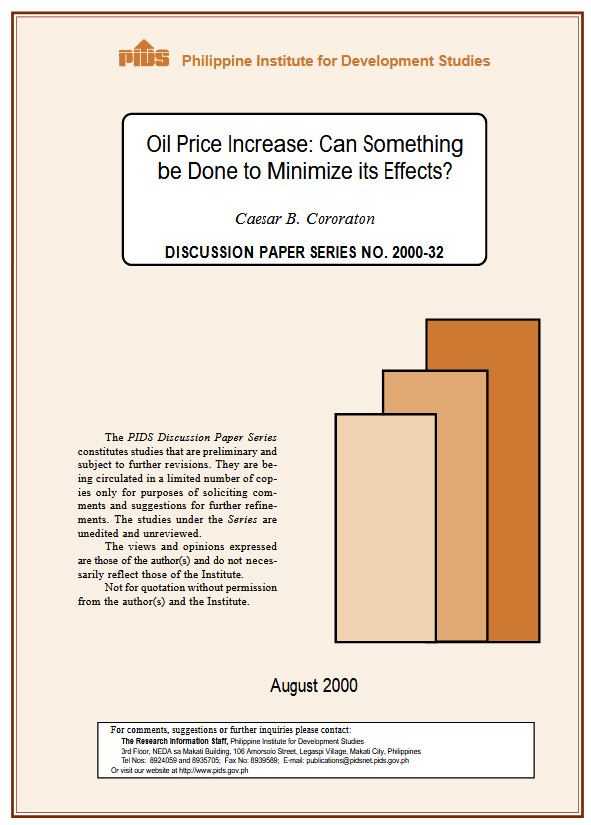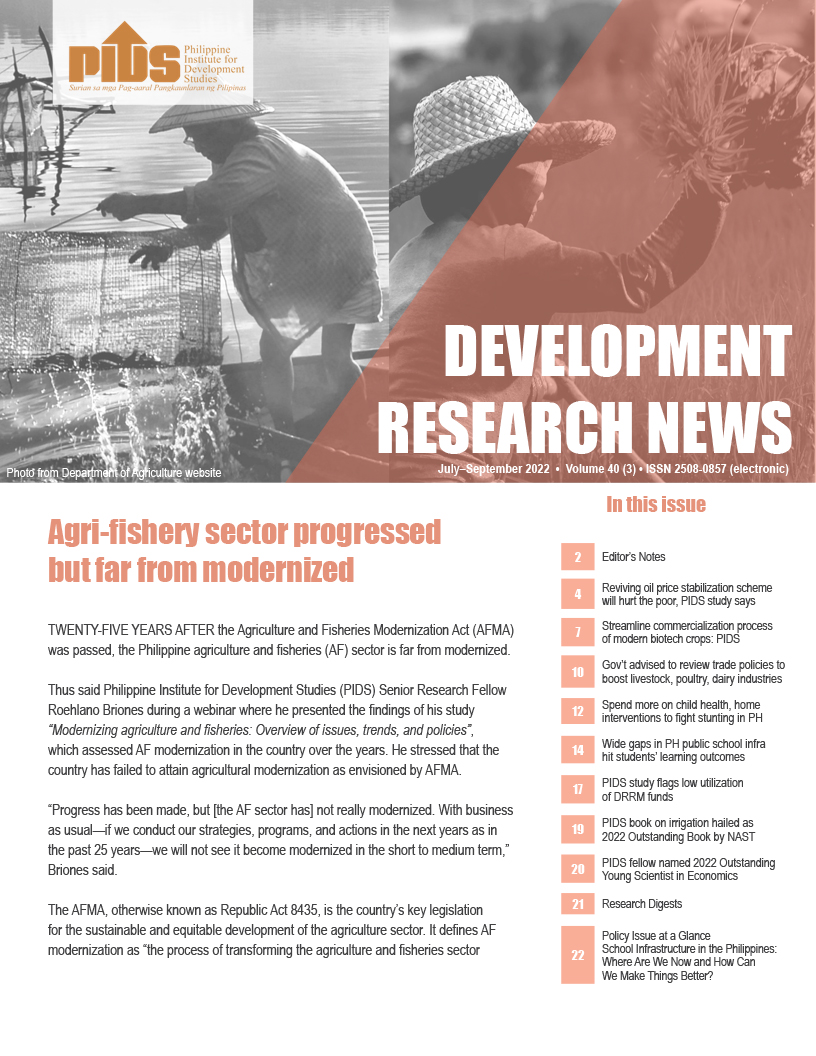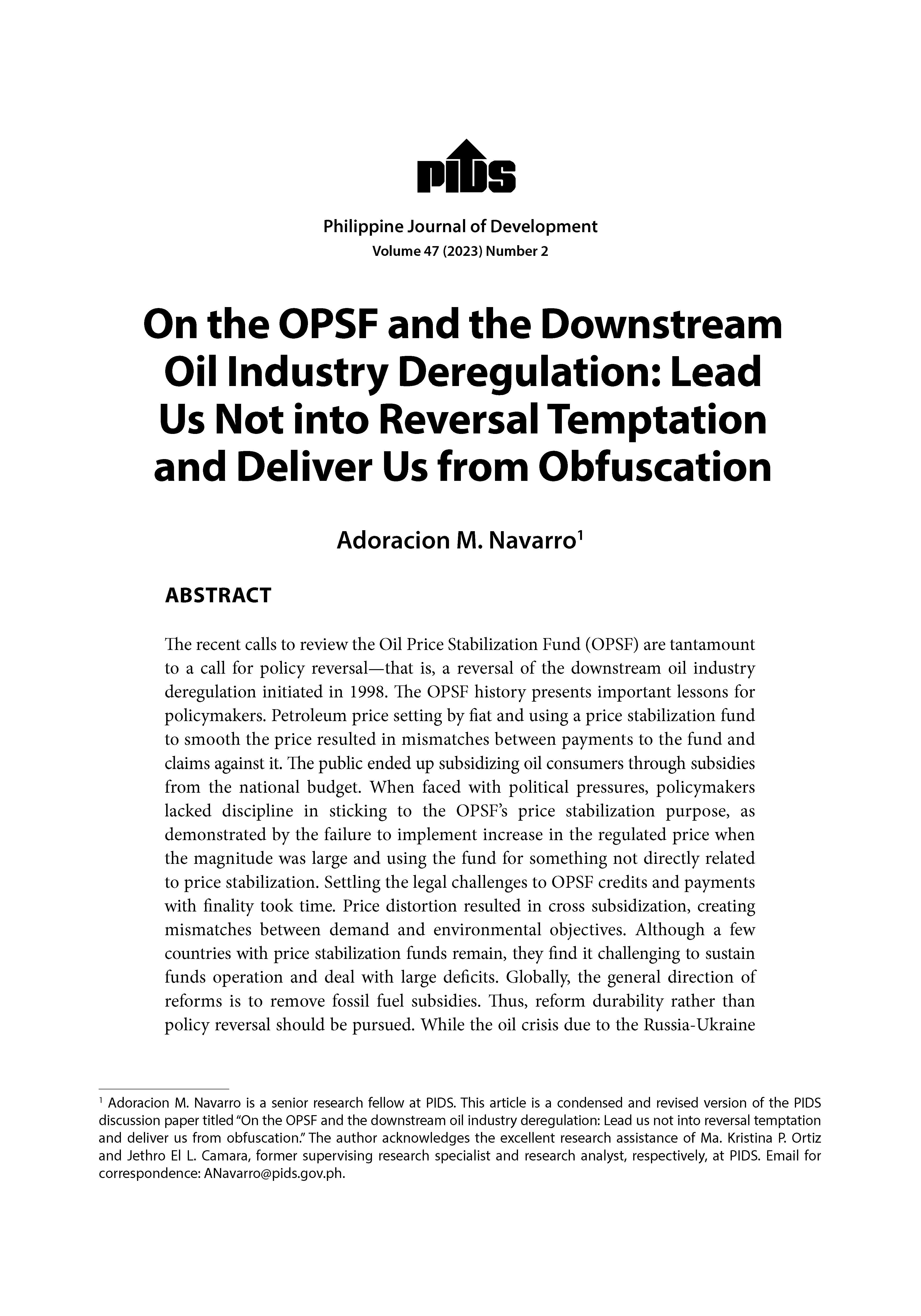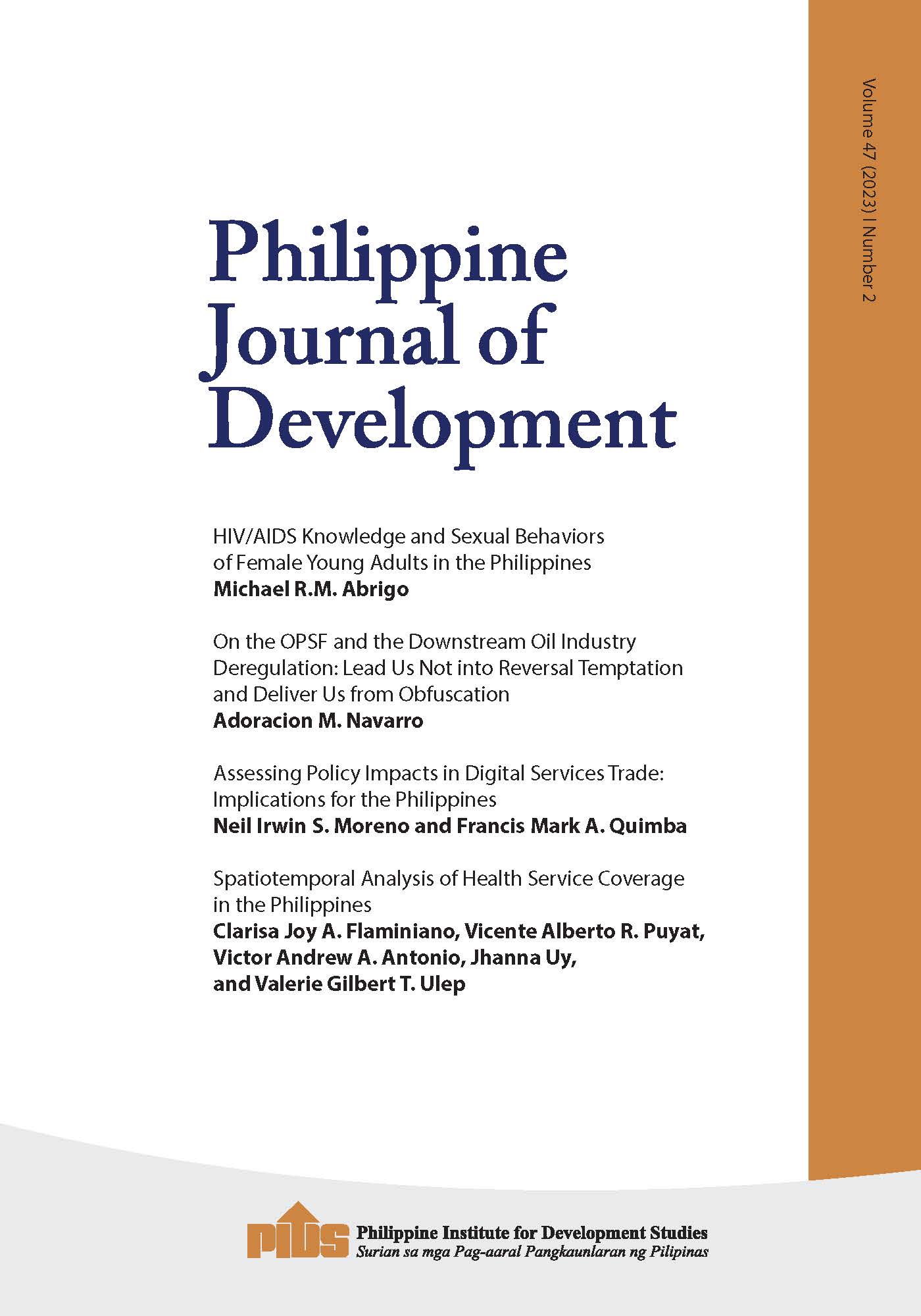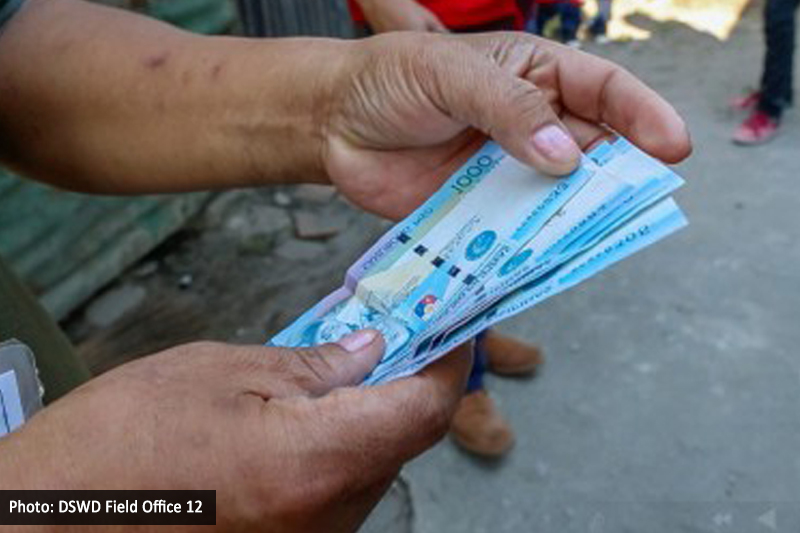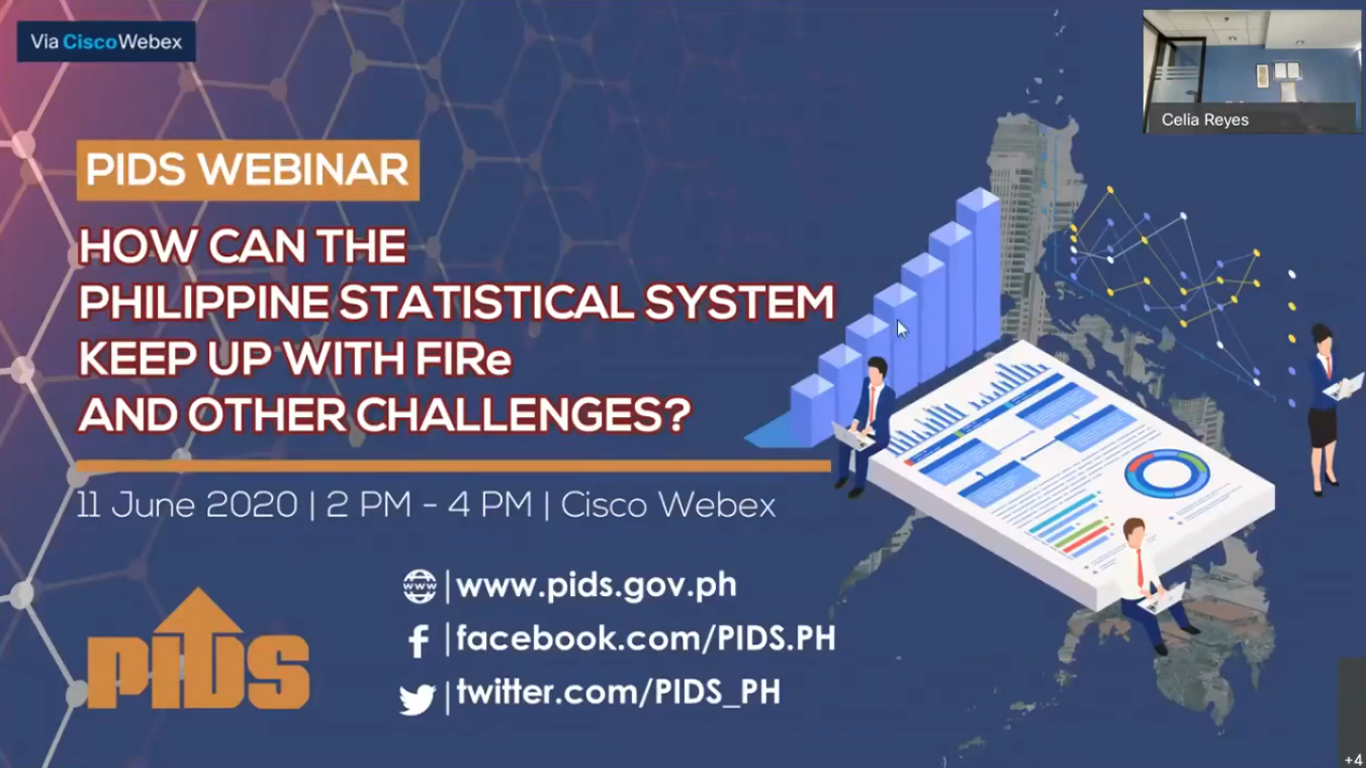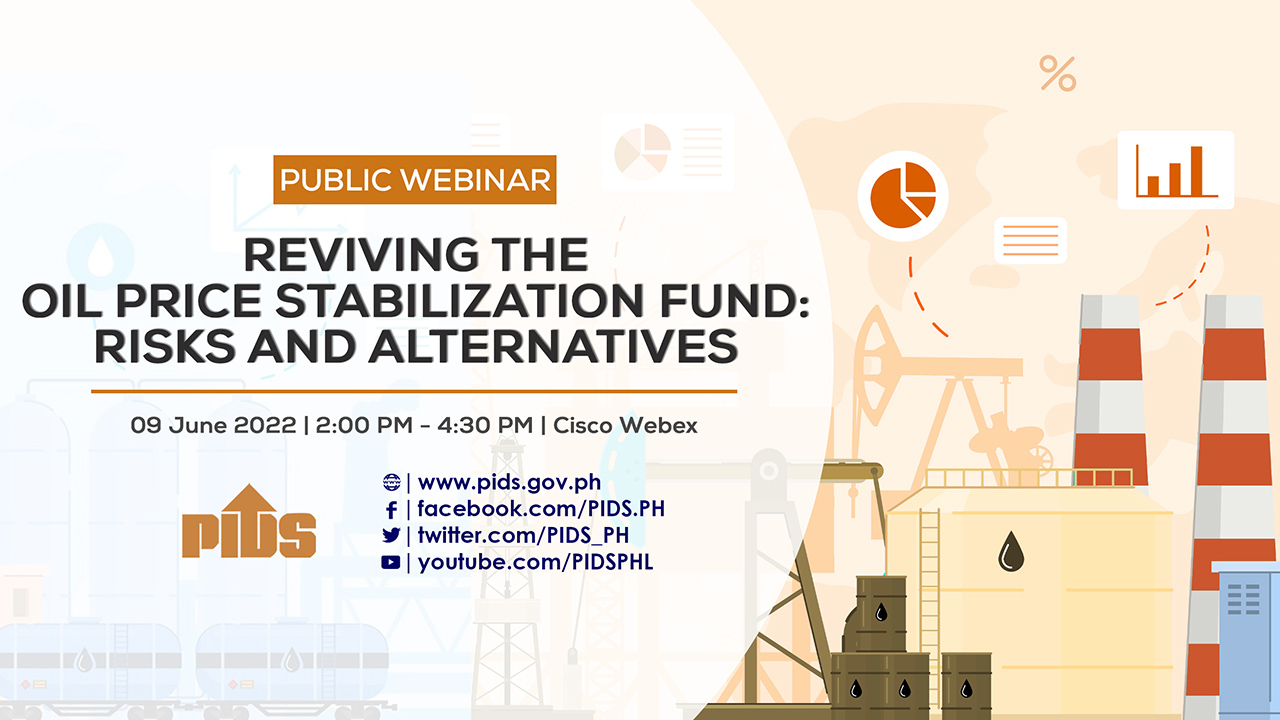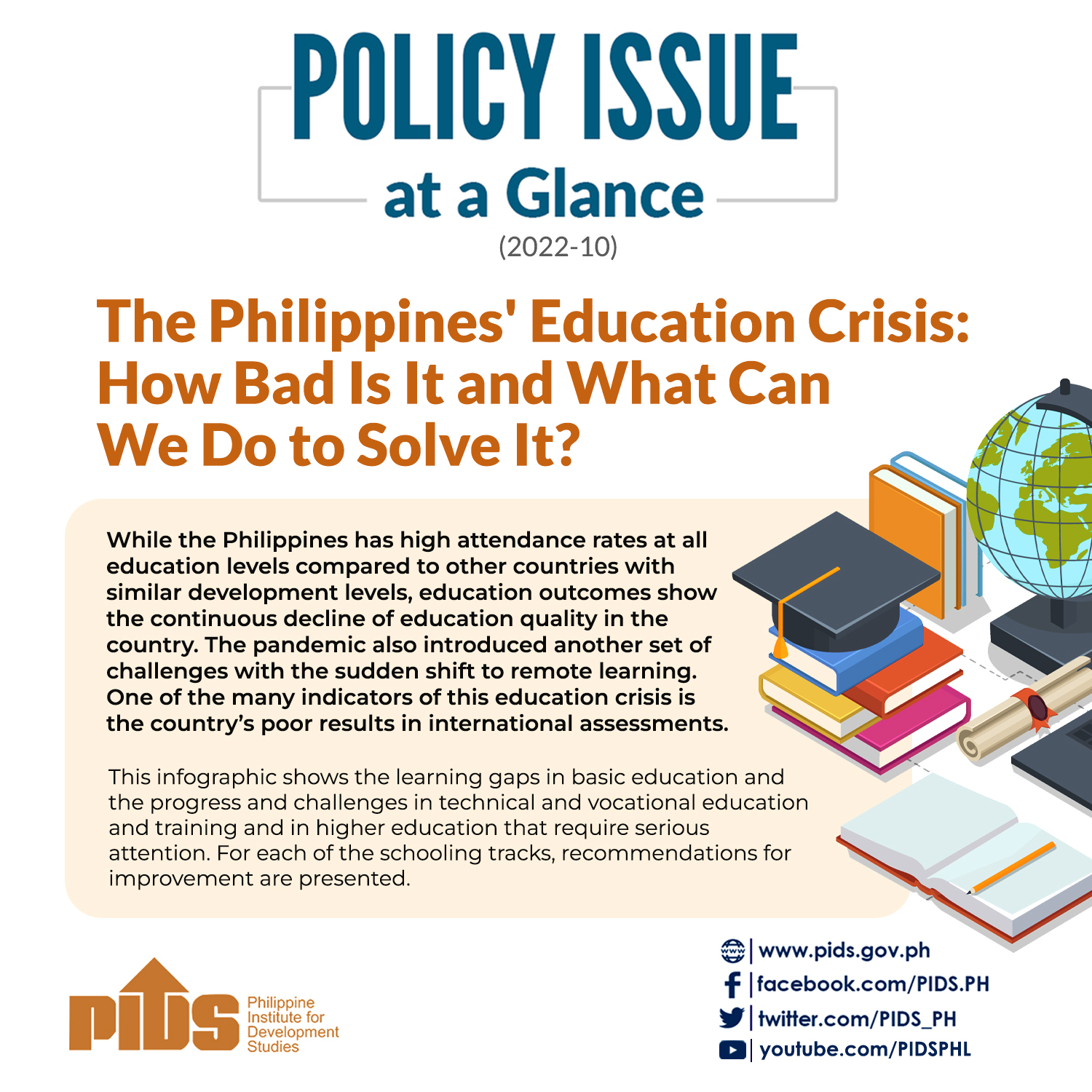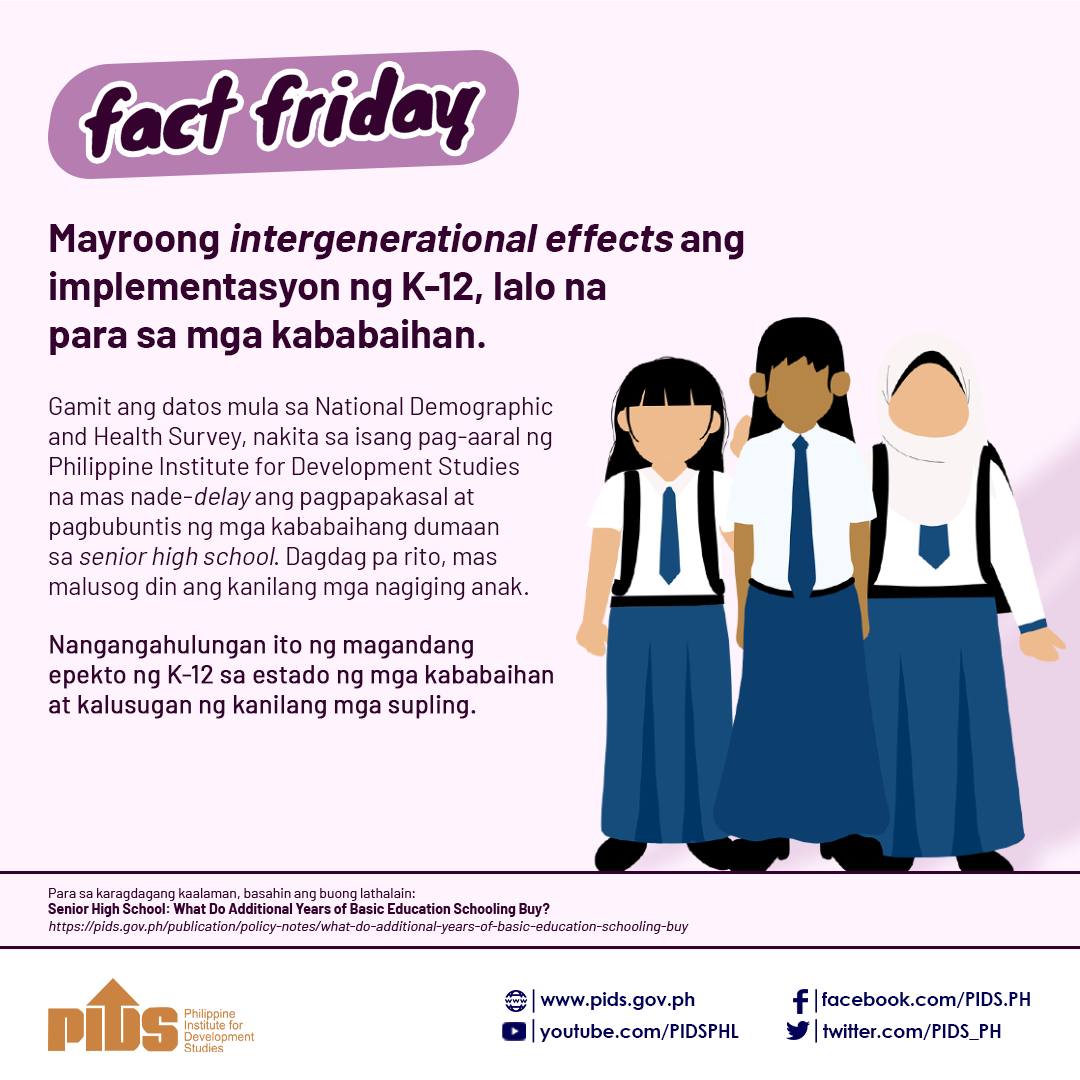Using a computable general equilibrium model of the Philippine economy, it is observed that the impact of an oil price change is negative. It is negative not only in terms of economic growth, but also in terms of income inequality and welfare. Can the effect be lessened? The paper argues that there may still be one way of lessening its negative effect. Using the criteria of growth, welfare and government budget, tariff rate on imported oil may be reduced to lessen, but not totally eliminate, the adverse effect. Simulations results using the model indicate that the government realizes some "windfall profit" out of the increase in the world price of oil and the depreciation of the exchange. One policy option that may be open is for the government to use this so as to lessen the burden of the oil price increase. There is one caveat, though, which may be noted. This is a policy implication derived from simulation exercise using PCGEM with all other things held constant, except for the variables analyzed. There may be other equally important concerns like the increase in foreign debt servicing as a result of the depreciation of the exchange which may also be put into consideration.
Citations
This publication has been cited 2 times
- Aldaba, Rafaelita M.. 2003. Regulatory policies and reforms in the power and downstream oil industries. Discussion Papers DP 2003-16. Philippine Institute for Development Studies.
- Aldaba, Rafaelita M.. 2006. Regulatory policies and reforms in the power and downstream oil industries. Philippine Journal of Development PJD, 31, no. 1. Philippine Institute for Development Studies.

